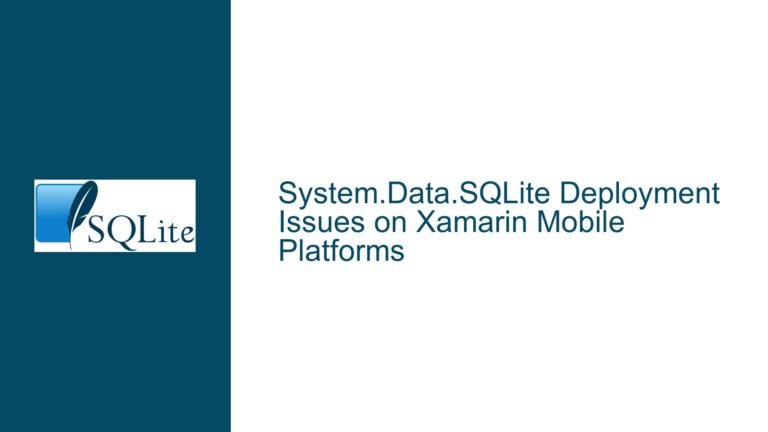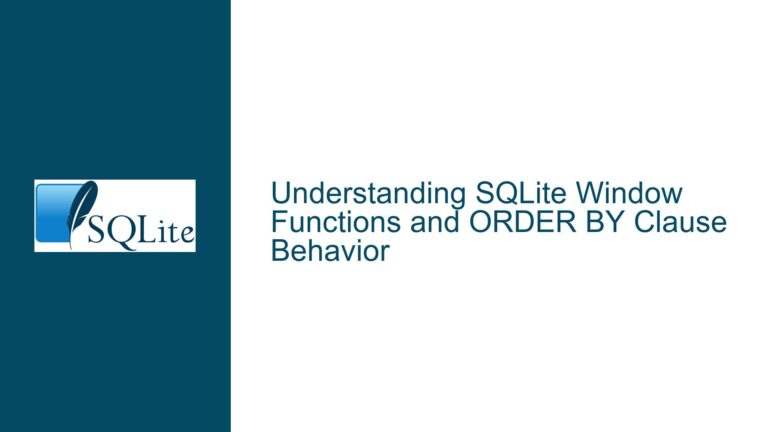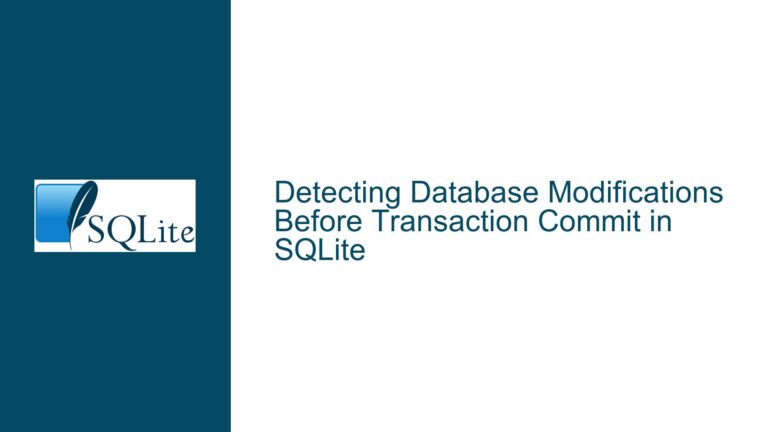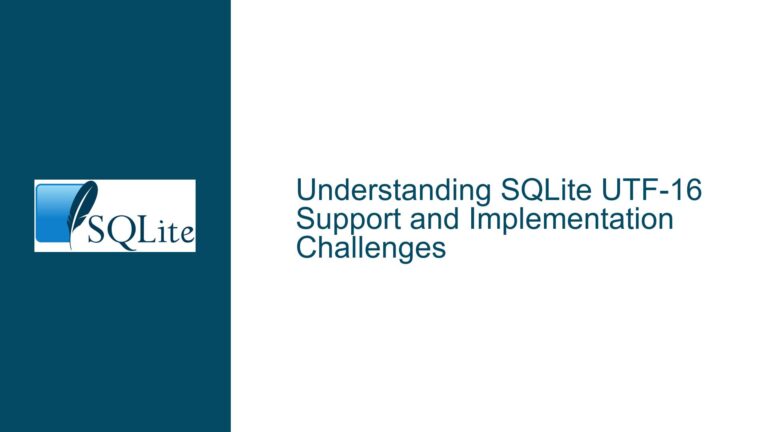System.Data.SQLite Deployment Issues on Xamarin Mobile Platforms
System.Data.SQLite Incompatibility with Xamarin Mobile Deployment System.Data.SQLite, a popular .NET library for interacting with SQLite databases, is widely used in desktop applications due to its robust feature set, including full ADO.NET support with DataAdapter and other advanced features. However, when attempting to deploy applications using System.Data.SQLite on Xamarin mobile platforms, developers frequently encounter deployment failures….









